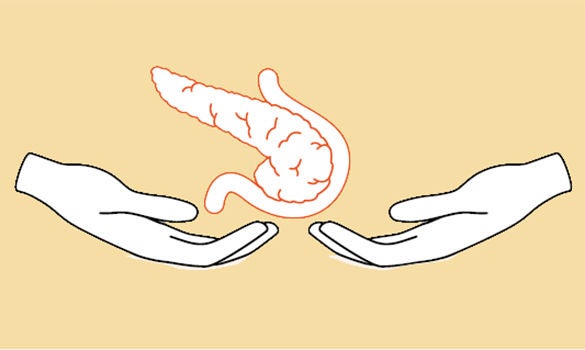
PANCREAS TRANSPLANT IN SINGAPORE
The pancreas transplant programme at Singapore General Hospital (SGH) was started back in November 2012 as a collaborative effort with National University Hospital (NUH) to establish a national pancreas transplant programme.
This was made possible with funding from the Ministry of Health (MOH) under the Health Services Development Programme (HSDP).
The current Programme Director is Dr Valerie Gan, Consultant from the Department of Urology, SGH. Working alongside her is Dr K Kamaraj, Consultant from the Department of Renal Medicine, SGH. Together with surgeons, physicians and allied health professionals from both the SGH and the NUH, the team screens for patients who are suitable to be placed on the waiting list and also oversee their pre and post-operative care.
WHO BENEFITS FROM PANCREAS TRANSPLANTATION?
In Singapore, there are about 400,000 diabetics and it is projected to rise to 1 million in 2050. One out of three Singaporeans will develop Diabetes Mellitus (DM) in their lifetime and two of three diabetes patients will develop kidney failure. With such alarming statistics, Singapore is ranked 1st in the world for diabetes-induced kidney failure Type 1 diabetics with complications from diabetes, particularly kidney failure, are the best candidates for pancreas transplant. When a suitable candidate undergoes surgery, the transplanted pancreas produces sufficient insulin to control the patient’s blood sugar and thus insulin injections will no longer be necessary. Over recent years, pancreas transplant has been found to also benefit a subpopulation of type 2 diabetics with kidney failure.
TYPES OF PANCREAS TRANSPLANT
There are three types of Pancreas Transplant surgery:
1. Simultaneous Pancreas-Kidney Transplant (SPK): The most common type of pancreas transplant. A Type I (and some Type 2) diabetic patient with kidney failure will receive both a pancreas and a kidney transplant from the same donor to minimise incompatibility.
2. Pancreas after Kidney (PAK): Indicated in patients with stable function of a previous renal allograft that meet the criteria for pancreas transplant.
3. Pancreas Transplant Alone (PTA): Indicated in Type I diabetics who have labile disease, frequently hypoglycaemic unawareness.
The pancreatic allograft survival rate is 86% at the 1 year and 53% at 10 years. SPK transplantation has showed good survival rate for 5 and 10 years of 87% and 70% respectively.
EVALUATION FOR PANCREAS TRANSPLANT
If a patient is considered a potential transplant recipient, he will undergo a comprehensive pre-transplantation workup which includes blood and urine investigations, cardiac catheterisation, and surgical evaluation. After performing all these tests, if the patient meets all the qualifying criteria for pancreas transplant, he or she will be placed on the national waiting list for the transplant.
Pancreas is currently not included under the Human Organ Transplant Act (HOTA) and donations are sought from cadaveric donors under the Medical (Therapy, Education and Research) Act (MTERA).
If a suitable donor is found, the patient will undergo one above-mentioned transplant surgery.
HOW DO I REFER A PATIENT FOR CONSIDERATION FOR PANCREAS TRANSPLANTATION?
For more information on the SGH pancreas transplant programme, or if you wish to refer a patient for consideration for pancreas transplantation, please contact:
Clinical Coordinator
SingHealth Transplant Administrative and Resources Office
SGH Block 1B, Level 3 (Rooftop)
1 Hospital Drive, Singapore 169608
Tel: 6576 2273
Email:
singhealth.transplant@singhealth.com.sg













 Get it on Google Play
Get it on Google Play